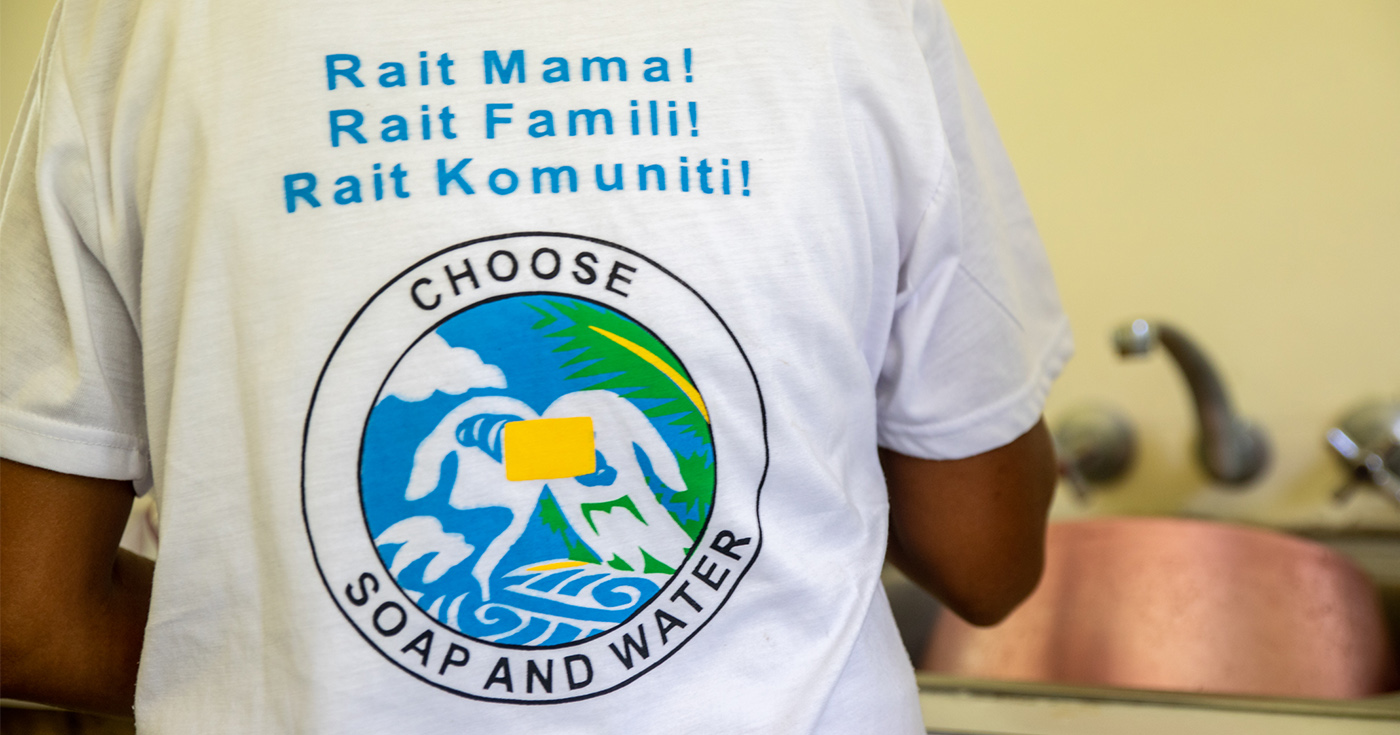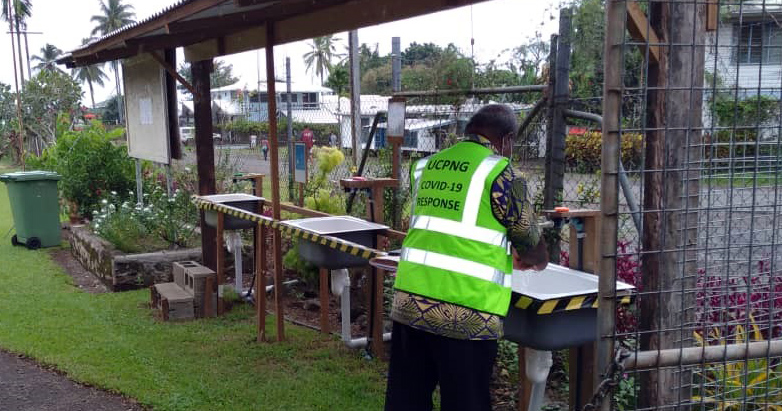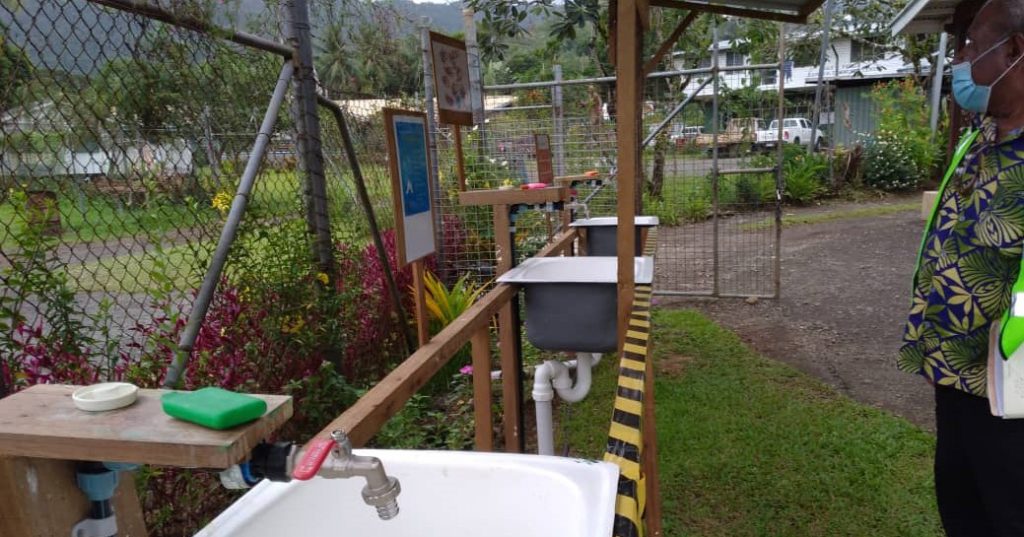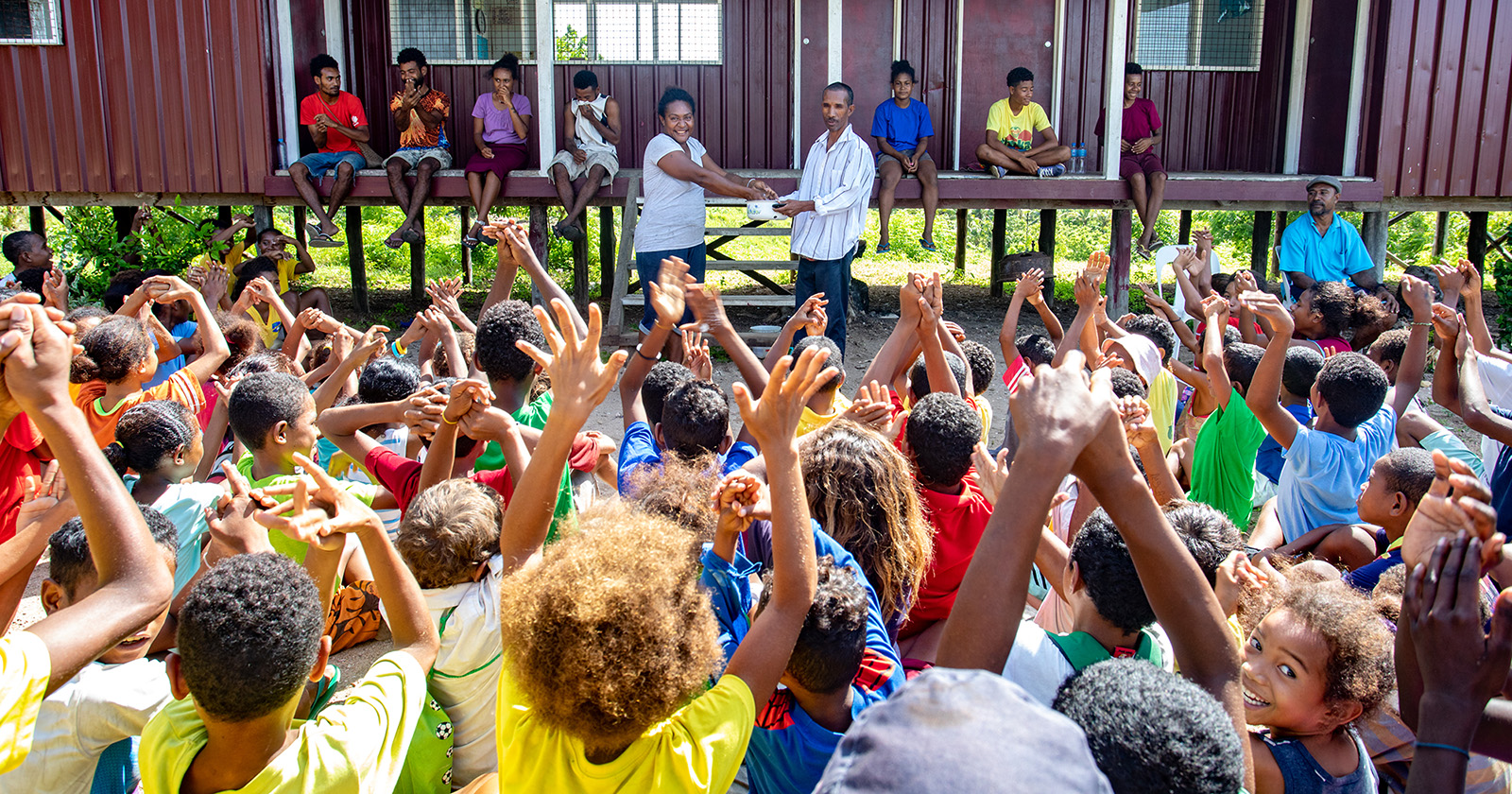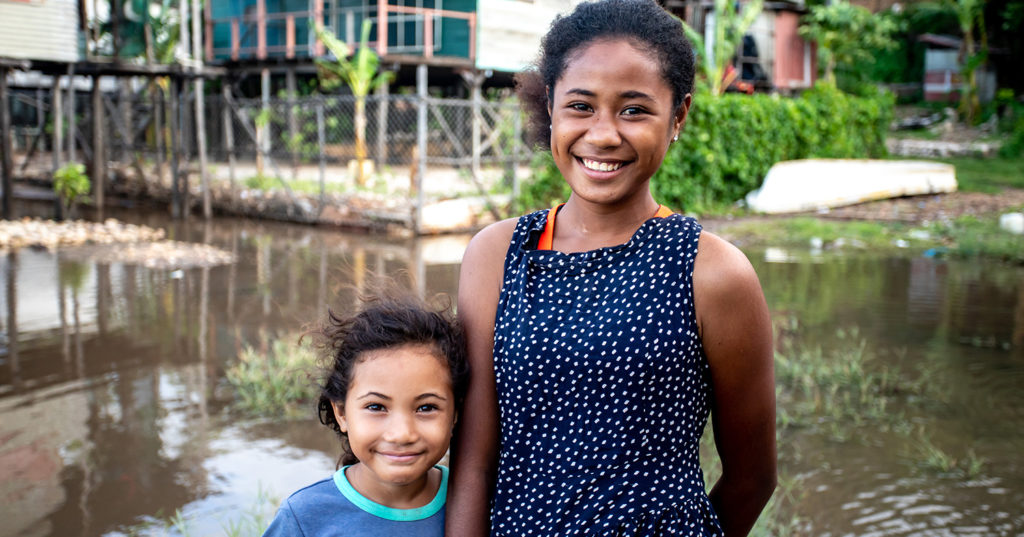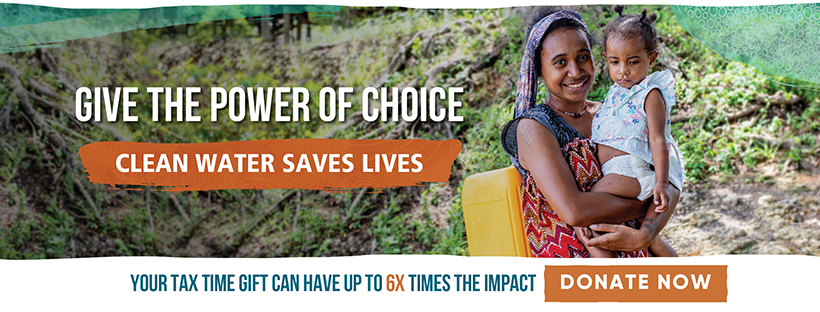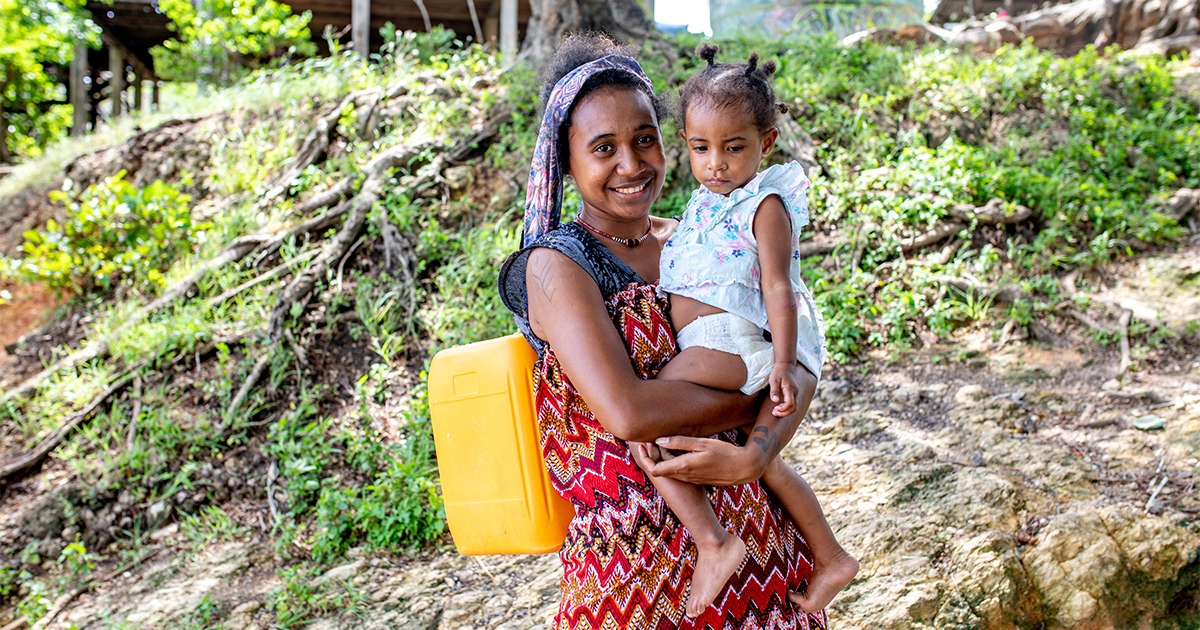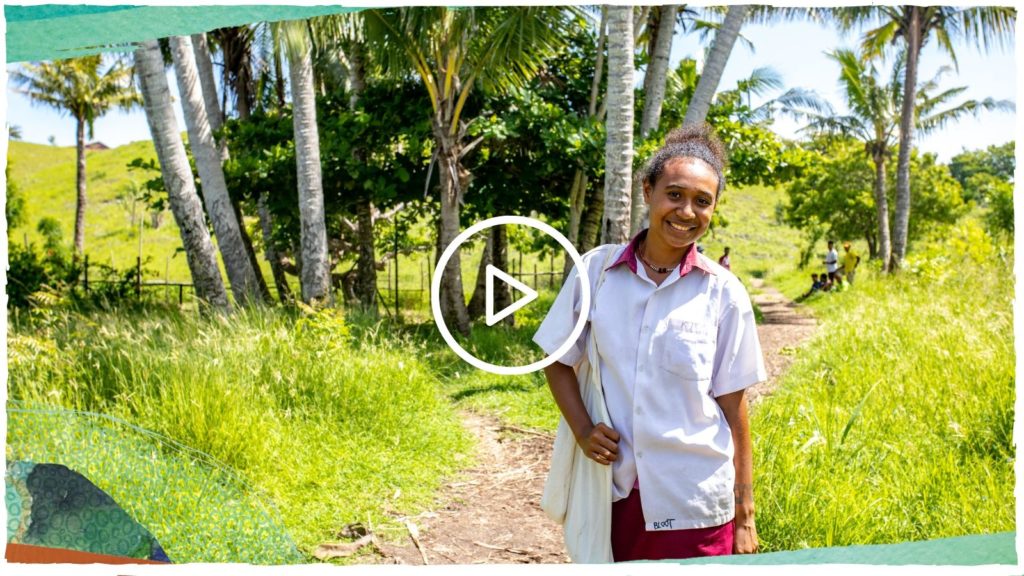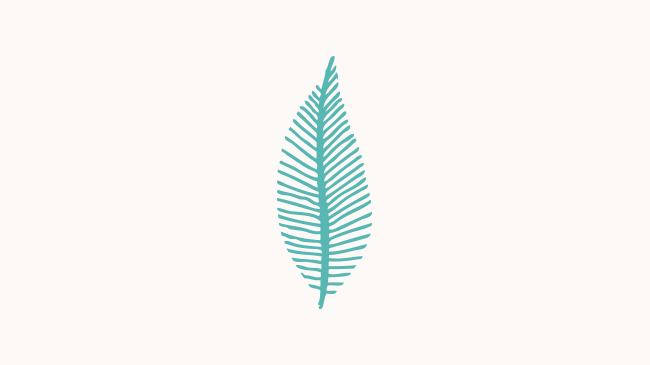Church partners in PNG were ready for COVID-19
Our partners, the United Church in Papua New Guinea (UCPNG), have been running a successful behaviour change campaign for many years, teaching thousands of people about the importance of clean water and good hygiene. When the pandemic hit Papua New Guinea, they were ready to expand this work to include COVID-19 awareness and prevention, and they’ve been out in force educating communities about the threats of COVID-19 and the importance of regular hand washing.
With the permission of the PNG Government, over the past six months the UCPNG team (along with volunteer change agents) have:
- educated 14,500 people on best practice water hygiene and sanitation
- distributed 687 pamphlets, 2505 posters, six banners and 3840 bars of soap
- worked with 11 congregations, 14 communities and six schools along the East Cape Coast
A team of three theologians also shared COVID-19 safety messages to help people understand this and other disasters from a theological perspective. One of them was Kerron, a recent Master of Theology graduate of Raronga Theological College. “Every home now is implementing the tippy tap approach to wash hands in the villages we visited, church seats are marked a metre apart and masks are sewn by women to help with schools and public,” said Kerron.
Thank you for supporting the work of our partners UCPNG and helping them make a huge impact in their communities!
The United Church in PNG Rural Water Supply and Sanitation Project is supported by the Australian Government through the Australian NGO Cooperation Program (ANCP).
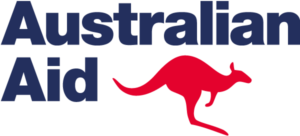
Header image: A Volunteer with UCPNG’s ‘Rait Mama’ behaviour change campaign.

